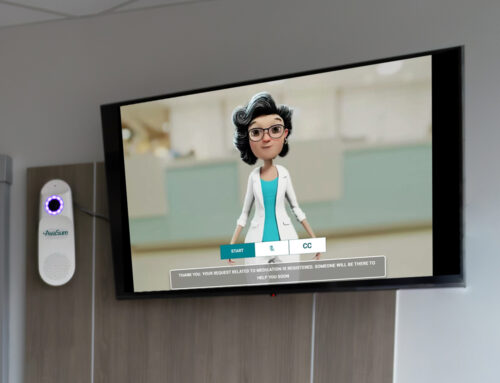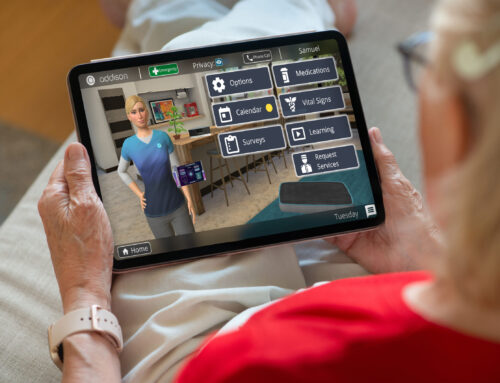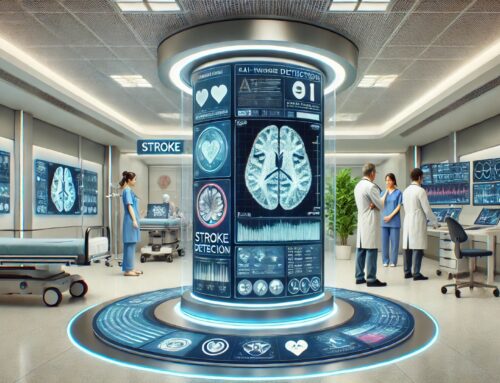AvaSure, Oracle, and NVIDIA have announced a collaboration to develop an AI-powered virtual concierge aimed at hospitals and health systems, according to a recent press release. This system is expected to enhance patient care by handling non-clinical tasks and improving hospital efficiency. The goal, as described by the companies, is to free up time for healthcare professionals, allowing them to focus on more critical care tasks.
Focus on AI in Hospital Operations
The virtual concierge system will incorporate advanced artificial intelligence, allowing it to perform tasks such as answering common patient questions, managing appointments, and processing requests related to non-medical care. According to the release, the system is designed to reduce the administrative burden on nurses and doctors, potentially alleviating some of the pressure caused by ongoing staff shortages in healthcare facilities.
AI tools like this have been increasingly seen as a solution to the global shortage of healthcare workers, particularly in nursing. As staffing levels continue to be a concern across many regions, the virtual concierge could assist in routine tasks that typically require human intervention, allowing healthcare professionals to focus on more complex and time-sensitive care needs.
Data Integration for Improved Patient Care
Oracle’s cloud-based data platform is set to play a significant role in this collaboration by integrating patient data with real-time insights from NVIDIA’s AI technology. According to AvaSure, the system will offer personalized patient interactions based on data gathered from medical histories and ongoing health updates. This type of integration is expected to provide more relevant and timely responses to patients, potentially improving their overall hospital experience.
Additionally, NVIDIA’s AI capabilities will be utilized to deliver predictive analytics, which can help identify patient risks earlier, according to the companies. For example, the AI system could monitor patterns in patient data to alert staff to potential issues like falls or changes in vital signs.
Addressing Workforce Challenges
One of the pressing challenges this system aims to address is the shortage of healthcare workers. According to AvaSure, the virtual concierge could relieve some of the strain on overworked hospital staff by managing routine tasks, which would enable professionals to spend more time on direct patient care. In theory, this could also reduce burnout and improve job satisfaction for healthcare workers, though the effectiveness of such systems is still being evaluated across the industry.
While the companies emphasize the potential benefits of the AI-powered virtual concierge, the adoption of AI in healthcare settings often comes with concerns about data privacy, security, and reliability. Hospitals and health systems implementing such technologies will need to ensure that they comply with strict healthcare regulations, such as the Health Insurance Portability and Accountability Act (HIPAA) in the United States.
Future Implications for AI in Healthcare
The collaboration between AvaSure, Oracle, and NVIDIA aligns with broader industry trends that see AI as a growing part of healthcare operations. Many experts argue that AI can contribute to more personalized and predictive healthcare by analyzing large amounts of patient data. However, widespread adoption remains a challenge due to technical limitations and the need for rigorous clinical validation.
As AI continues to evolve in healthcare, it is expected to play a more significant role in addressing some of the industry’s most pressing issues, from staff shortages to patient safety. The development of tools like the virtual concierge could offer a glimpse into how future hospitals might operate with more automation in routine processes.
While AI holds promise, the impact of this collaboration will depend on how well the system integrates into existing healthcare workflows. Hospitals looking to implement AI-driven solutions will likely need to weigh the potential benefits against the complexities of deployment, such as training staff, maintaining data security, and ensuring system reliability.
Conclusion
The AI-powered virtual concierge developed by AvaSure, Oracle, and NVIDIA represents an interesting development in the growing intersection of AI and healthcare. By automating routine tasks, the companies aim to improve efficiency within hospitals and health systems. However, as with many AI-driven technologies, its success will depend on its practical application in real-world settings.
For more details on AvaSure’s healthcare innovations, visit AvaSure. You can also read the full press release here.












